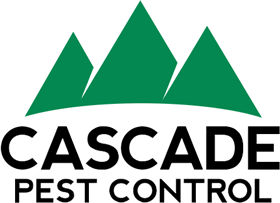Author: Kurt Treftz, Cascade Pest Control
The Greater Seattle/Puget Sound region has had the misfortune of the being one of the top US cities experiencing the COVID-19 outbreak.
Even with the public health safeguard protocols in place for social distancing, extra hygiene measures, closing non-essential business, etc., the next-step likelihood of ‘shelter in place’ is very real.
When we consider the likelihood of ‘shelter in place’ it is helpful for us to know that ‘essential businesses’ would remain open. But what constitutes an ‘essential business’ and why? We can look at what has happened in the San Francisco/Bay Area as an example.
Here is an excerpt of language used in the California municipalities that have ‘shelter in place’ orders:
For the purposes of this Order, “Essential Businesses” means: i. Healthcare Operations and Essential Infrastructure; ii. Grocery stores, certified farmers’ markets, farm and produce stands, supermarkets, food banks, convenience stores…. viii. Hardware stores; ix. Plumbers, electricians, exterminators, and other service providers who provide services that are necessary to maintaining the safety, sanitation, and essential operation of residences, Essential Activities, and Essential Businesses.
Pest Control Services Necessary for Maintaining Safety, Sanitation
It has been widely documented that the Puget Sound basin with its climate and abundant water—especially the urban and suburban areas—are very heavily populated with rats (usually both Norway and roof-rats).
What is largely unknown among our citizens is the extent of the rodent damage, filth, disease, and contamination problem – and the fact that without thousands of folks choosing to hire pest control professionals to routinely control rodents, our cities and housing developments would quickly be overrun. Postponing these efforts when dealing with species that multiply rapidly (especially in spring and summer) would have catastrophic results.
It is estimated that as many as 200,000 homes and businesses are routinely serviced for rat and rodent control. These efforts maintain the needed suppression of rat populations in cities and suburban neighborhoods. Without such efforts the problem would multiply and be out-of-hand within a few weeks. What’s critical is that the health department even under normal conditions has no ability to step in to control rodent pests. And with the health departments already stretched to the max it would only exacerbate the current health crisis.
In the course of providing rodent pest management—rodent population suppression at the exterior of structures and rodent control (or extermination) for rats already entered—it is normal for us to replenish rat bait in bait stations every month or two. What this means is that the pest control industry is constantly suppressing rat populations in cities and suburban areas. And we are constantly suppressing mice populations in outer suburban and rural areas. If this were to suddenly stop there is no doubt that rodent populations would increase exponentially.
Insects Are Also a Problem
While many insects thrive as the weather becomes warmer many are simply a nuisance, but others can spread disease or cause bites and stings. Among these are ticks, fleas, yellow jacket wasps, Asian giant hornets, and flies. Cockroaches are mostly found in multi-family buildings and can both spread disease and cause asthmatic responses in people.
What’s critically important here is the fact that private industry is currently employed to suppress and/or control a wide variety of pestilence issues. And, importantly, health departments are not equipped to step in to take this over, especially at this present time.
Pest control services are considered an essential business for sanitation/health consequences of current and upcoming rodent and insect pest issues.
Should you have any further questions please contact Cascade Pest Control at 888-989-8979
